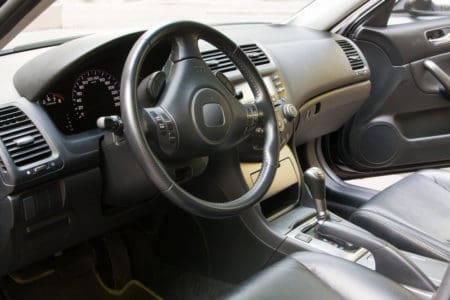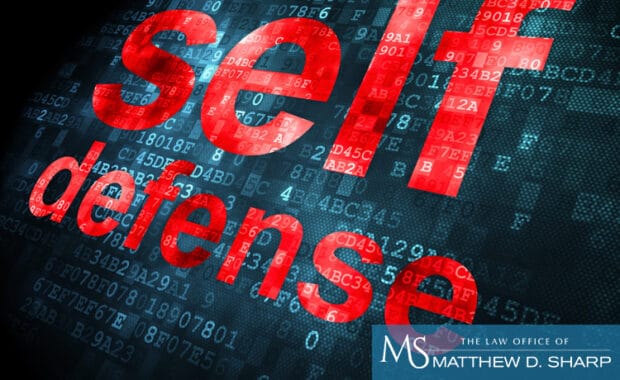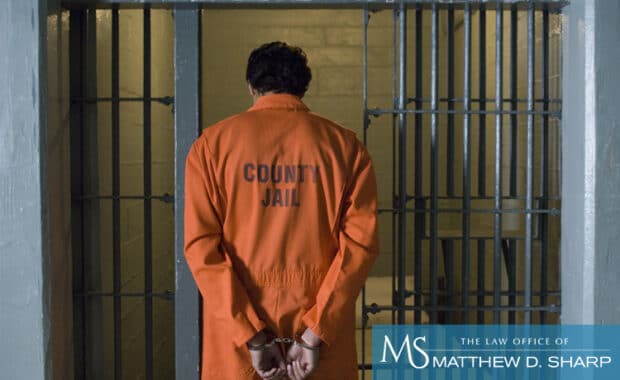House Bill 1815 became effective on September 1, 2007. It permits the ability of law-abiding Texas residents to legally carry a handgun in their motor vehicles in Texas (without a Concealed Handgun License (CHL) or other type of permit.
If the resident is legally permitted to own firearms and the vehicle belongs to the permitted individual, he or she may keep a loaded or unloaded firearm in his or her vehicle in Texas. The following qualifiers include:
- The handgun in the vehicle must be concealed: it mustn’t be in plain view.
- The permitted individual must not have a history of criminal activity, other than Class C traffic court misdemeanors.
- The permitted individual isn’t part of a criminal gang.
- Federal laws don’t prevent the permitted individual from owning or possessing firearms.
Do you know someone who is facing a gun charge?
Contact Houston weapon lawyer Matthew Sharp today »
What does concealed from plain view mean?
The term plain view isn’t specific to any location. That is, the firearm doesn’t need to remain in a case, glove compartment, etc. The law says it must be hidden by the owner from the view of others.
The owner, even if he or she doesn’t have a CHL, can wear the firearm in a holster if he or she is in the vehicle. If the owner doesn’t have a CHL, he or she can’t lawfully carry a firearm outside of his or her vehicle unless he or she is directly en route to his or her “property.”
This means the firearm owner can’t carry it into a convenience store, rest stop, gas station, or any other place he or she might decide to stop when driving a motor vehicle. The law says that owner must leave the gun secured and concealed in the vehicle.
Can the permitted individual carry a long gun in Texas?
Most Texas notice that many vehicles are fitted with gun racks in. A rifle or shotgun doesn’t need to be concealed or secured in the vehicle. The long gun may be kept within the owner’s reach. It may be kept loaded.
For that reason, the law says the long gun owner has the right to display a shotgun or rifle in a gun rack or decide to keep in on the seat of the vehicle.
Realize that doing so, however, tends to make law enforcement officers uneasy. Displaying long guns prominently may increase the number of traffic stops the owner endures.
What federal laws prohibits people from possessing ammunition and firearms?
Federal prohibitions include:
- Individuals convicted of crimes punishable by one year or more in prison (unless his or her gun rights are restored).
- Individuals charged with a felony are prohibited from firearms’ possession.
- Fugitives may not possess or own firearms and ammunition.
- Addictions or users of controlled substances may not own or possess firearms.
- Individuals previously adjudicated as mental defectives, or those committed to mental health facilities (unless the individuals’ gun rights are restored).
- Individuals with non-immigrant visas or illegal aliens may not possess or own firearms.
- Dishonorably discharged individuals from any of the U.S. armed forces may not possess or own firearms.
- Individuals who have renounced U.S. citizenship may not own or possess firearms.
- Individuals who are subject to certain domestic court orders or protected orders are prohibited from owning or possessing firearms.
- Individuals convicted of domestic violence-related misdemeanor crimes may not own or possess firearms.
Second Amendment rights
The Second Amendment of the United States Constitution describes citizens’ rights to bear arms. U.S. citizens have the right to own firearms and ammunition.
The above-referenced caveats are current exceptions to the Second Amendment.
If you have concerns or questions about possessing or carrying a firearm or weapons crimes in the state of Texas, contact an experienced Texas gun crimes lawyer.
Texas Gun Law Basics
You don’t need a permit to purchase firearms in Texas:
- You must be 18 years of age or older to buy a long arm firearm, 21 years of age to purchase a handgun, and at least 18 years of age to possess firearms.
- There are certain exceptions involving minors using a gun under the supervision of an adult.
You aren’t required to register a handgun or long gun in Texas. In addition, you aren’t required to request an owner license for firearms.
Texas doesn’t have an assault weapons law at this date.
Texas law currently permits legal concealed carry of a handgun, contingent upon the individual’s obtaining an appropriate permit.
Municipal government restriction or limitation of firearms use in Texas
In certain circumstances, a municipal government may limit the possession or use of firearms:
- Think twice before discharging firearms on a local street, even if firing into the air.
- A municipal government may restrict the user’s ability to carry (even on a concealed basis) in some locations, e.g. within a K-12 school district.
There’s are no restrictions concerning firearms covered by the National Firearms Act, or NFA. As long as the user remains compliant under the federal laws, he or she is covered under Texas laws as well.
Texas’ “peaceful journey” laws
Individuals may possess a loaded firearm is passing through the state of Texas if it’s kept in the individual’s watercraft or motor vehicle. It’s also legal to carry one’s loaded firearm to a personal vehicle.
Texas “castle doctrine” and “stand your ground laws”
Texas’ gun laws observe the so-called castle doctrine. The resident of a dwelling may legally employ deadly force when protecting themselves against a forced or unlawful intruder. He or she may use deadly force to protect other occupant(s) of the dwelling.
Texas’ stand your ground law says that the individual isn’t obliged to retreat from any location at which he or she has a right to be.
Texas CHL
There are age restrictions on Texas’ CHL. An individual must be at least 21 years old, with the exception of active military (at 18 years old) to obtain a CHL. The following individuals may not obtain a CHL in Texas:
- Persons convicted of any felony or Class A/B misdemeanors;
- Persons facing pending any type of criminal charges;
- Persons with two prior convictions involving alcohol/chemical dependency issues within the past 10 years;
- Persons suffering from specific conditions and/or psychological impairments;
- Persons subject to restraining or protective orders;
- Persons in default on governmental fees, taxes, or child support.
Users must attend a CHL class before applying for it. He or she must pass state-approved coursework taught by licensed instructions. The applicant must pass a written exam that covers handgun safety, facts concerning civil/criminal liability, and Texas gun laws. He or she must also pass a firing range test that determines his or her firearms’ competency, e.g. firing at least 50 rounds from the firearm he or she wants to carry.
A CHIL holder may be restricted from carrying his or her weapon in certain places:
- Properties owned by the U.S. Government, including post offices and national parks
- Public sporting events, unless the holder is participating in a target-shooting competition or event at which he or she must use firearms
- Businesses posting a “51 percent” sign: These businesses make most of their revenues from the sales of alcohol. You can’t possess firearms on the premises of a nightclub, bar, saloon, or tavern.
- Correctional facilities, such as a jail or prison. Exceptions to this rule include court employees, e.g. attorneys, judges, bailiffs, or guards.
- Election poll locations.
- Racetracks, including auto, dog, or horse racing locations.
- “30.06” Sign: The owner may prevent the holder from carrying on the premises, even if he or she has a CHL. The notice must be publicly displayed.
Additional restrictions
The laws of Texas state that individuals can’t carry firearms when under the influence of alcohol or drugs. A person may face gun crimes charges if law enforcement detects any measurable blood alcohol level (BAC). The individual may not carry a gun if he or she is using any substance that impairs motor skills or judgement.
A property owner or manager has the right to require any armed person to leave the premises. The firearm holder must peacefully comply with the order right away—even if he or she has a CHL.
Contact defense attorney Matt Sharp to discuss your case »
Summing Up
It’s generally illegal to carry a firearm outside of an individual’s residential premises in Texas. The individual may choose to carry, either concealed or open (in a non-alarming or –threatening manner) a rifle or shotgun.
There are areas in Texas where an individual may legally possess a firearm without a CHL, including:
- The individual’s real property (under his or her control).
- The individual’s watercraft or motor vehicle (if concealed), when he or she is legally permitted to possess or own a firearm, isn’t a street gang member, and doesn’t have a criminal history involving an offense greater than a Class C misdemeanor boating violation or traffic offense.
- The individual is participating in legal sport, fishing, or hunting activities on “immediate premises” or is moving en route between these premises and his or her motor vehicle or residence, when the firearm is typically used in performing the activity.
- The individual must safely store loaded firearms in a place that prevents children under the age of 17 from accessing them, e.g. using trigger locks if a child less than 17 years of age might access it.
Facing Gun Crimes Charges? Consult an Experienced Texas Criminal Defense Lawyer
The laws concerning how and when you may lawfully carry a gun are often confusing or even conflicting. Each time you make the decision to carrying a weapon in your vehicle, you’re potentially vulnerable to arrest.
If you’re facing a gun crimes charge, you need an effective criminal defense attorney to protect your legal rights. A firearm offense conviction may have negative effects on your right to own, possess or maintain concealed weapons. It could also affect your ability to obtain employment or result in the forfeiture of your firearms.
Contact The Law Office of Matthew D. Sharp in Houston now at 713-868-6100.






